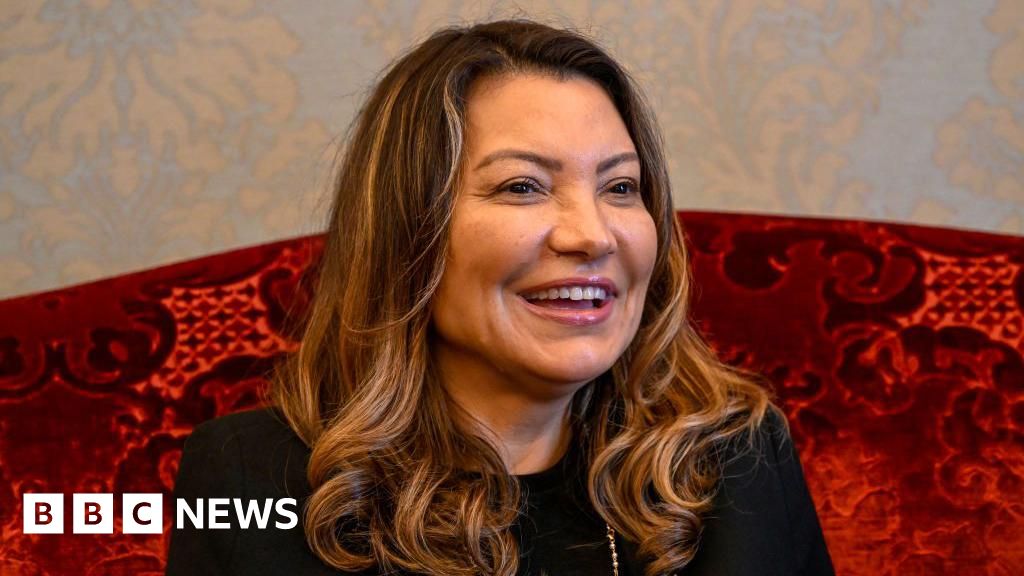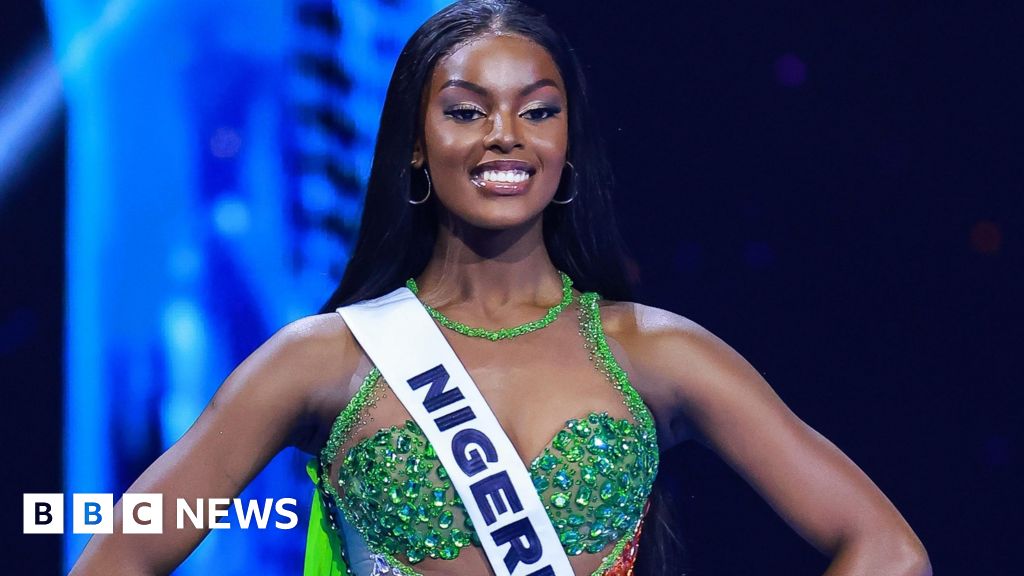ARTICLE AD BOX
Image source, Getty Images
US President Joe Biden's Supreme Court pick is taking questions on her career and record from lawmakers on a key Senate panel over the next two days.
If the 22-member Judiciary Committee advances Ketanji Brown Jackson's nomination, she will be considered by a vote of the full 100-member Senate.
If confirmed, she would replace liberal Justice Stephen Breyer when he retires at the end of the court term in June.
So the political balance of the court would remain largely the same.
But it would be history-making because Ms Jackson would be the first black woman in the court's 233-year existence.
In her opening statement on Monday, the 51-year-old told the committee she would take her "duty to be independent very seriously".
Members of the committee have 30 minutes each on Tuesday to question the jurist, and an additional 20 minutes on Wednesday.
Here is a look at the key moments so far, with analysis by our political correspondent Anthony Zurcher.
Jackson's judicial philosophy
What happened: Several Republicans have focused on how Ms Jackson views and interprets the law. Some question if she is an "activist judge" imposing her policy views or preference from the bench.
The judge replied that she is "acutely aware" of the limits on her judicial authority and has a three-step methodology to keep herself in check. "I am trying in every case to stay in my lane," she said.
Democrats argue Ms Jackson's record is well-established through over 500 legal opinions and because she has been confirmed in the Senate on three prior occasions.
What it means: Politicians of all stripes like to complain about "activist" judges who pursue their own agendas. Of course, judges are only improperly activist when they're ruling in ways that the politicians don't like. When asked about her judicial philosophy, Ms Jackson emphasised neutrality and restraint as key components of her judicial philosophy. That was her way of defusing Republican criticism that she will defend liberal priorities on the court (even if that's exactly what most Democrats hope, and expect, she will do). By Anthony Zurcher
Adding more justices to the court
What happened: With the Supreme Court recently consolidating a 6-3 conservative majority, liberal politicians and activists have suggested adding seats to the top court.
Democrats argue it could restore the court's damaged credibility, but Republicans have slammed the proposal as a means of installing more liberal justices to the court. Sitting Supreme Court justices have also spoken out against the idea.
Asked about the issue on Tuesday, Ms Jackson deflected: "Judges should not be speaking to political issues. It is a policy question for Congress."
What it means: It might seem like Ms Jackson is interviewing for a truck-driving job, not a seat on the Supreme Court, the number of times she was intent on "staying in her lane". That was her canned response to any attempt by senators to get her to weigh in on what she viewed as political issues. Adding seats to the Supreme Court - "court packing," as it is derogatively called - was just such an instance. Democrats may love the idea of putting more liberal-leaning justices on the court, and Ms Jackson might enjoy the company, but she isn't going to say so under committee questioning, when such answer would quickly be used by Republicans to energise their voters in upcoming elections." By Anthony Zurcher

 2 years ago
50
2 years ago
50








 English (US)
English (US)